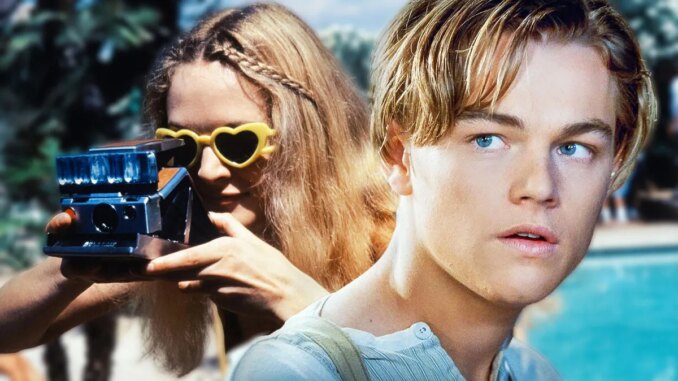
The Iceberg of Regret: DiCaprio, Titanic, and the Unseen Masterpiece
Leonardo DiCaprio, a name synonymous with Hollywood royalty and a dedication to challenging, complex roles, is a figure who seemingly has it all. Yet, even for titans of the film industry, choices made in the heat of the moment can cast long, chilling shadows. Rumours swirl, often attributed to DiCaprio himself, that he harbours a deep regret: rejecting a role in a potentially profound and intellectually stimulating film to chase the glittering promise of James Cameron's Titanic. While specifics remain elusive, the narrative itself is compelling – the allure of blockbuster fame versus the pursuit of artistic fulfillment, a choice that, according to the legend, continues to haunt him.
The appeal of Titanic is undeniable. It was a cinematic behemoth, a spectacle of romance and tragedy that captured the hearts of audiences worldwide. For a young DiCaprio, on the cusp of superstardom, it offered the opportunity to solidify his heartthrob status and guarantee his place in the Hollywood pantheon. The film's scale, the director's vision, and the potential for global recognition were powerful lures. It's easy to imagine the pressure he faced: the agents, the studio executives, and the overwhelming weight of expectation pushing him towards the role of Jack Dawson. Choosing Titanic was a calculated risk, albeit one seemingly destined for success, a golden ticket to Hollywood immortality.
However, the supposed alternative, the "profound film" DiCaprio reportedly rejected, hints at a different path, one less paved with guaranteed acclaim but potentially richer in artistic rewards. We can only speculate about the nature of this project. Perhaps it was an independent film tackling complex social issues, a character study delving into the depths of the human psyche, or a visually stunning arthouse piece that challenged conventional storytelling. Whatever its specifics, it represented a different kind of ambition, a desire to engage with cinema as a powerful tool for exploration and commentary, rather than simply as a vehicle for entertainment.
The regret, if true, stems from a deeper understanding of his own potential and the possibilities he sacrificed. Titanic catapulted him to global fame, but it also arguably confined him, at least initially, to a certain type of role. For years, he fought to break free from the heartthrob image, consciously choosing challenging and nuanced characters in films like The Aviator, The Departed, and Blood Diamond. Each performance was a deliberate step away from the innocent romantic, a demonstration of his range and his commitment to serious acting.
The hypothetical "profound film" offered the potential to establish this credibility earlier in his career. It could have allowed him to bypass the heartthrob phase altogether and immediately position himself as a serious actor, a risk-taker willing to explore the darker corners of the human experience. This is the potential regret – the missed opportunity to define his artistic identity on his own terms, instead of allowing the tsunami of Titanic's success to dictate his path.
The tale of DiCaprio's supposed regret serves as a potent reminder of the complexities of artistic choices. It highlights the tension between commercial success and artistic integrity, between instant gratification and long-term fulfillment. While Titanic undeniably shaped his career, providing him with the platform to eventually pursue more challenging roles, the hypothetical "profound film" represents a road not taken, a chance to have steered his career in a different, perhaps more artistically fulfilling direction.
Whether the story is entirely true or a romanticized retelling, it resonates because it taps into a universal human experience: the what-ifs, the choices we make that shape our destinies, and the lingering doubts that haunt us long after the credits have rolled. For Leonardo DiCaprio, the iceberg of regret, if it exists, serves as a constant reminder that even in the glittering world of Hollywood, the pursuit of artistic fulfillment can sometimes be sacrificed at the altar of fame, leaving a chilling trace in its wake. It is a lesson that resonates not just for actors, but for anyone striving to balance ambition with the pursuit of a truly meaningful life.